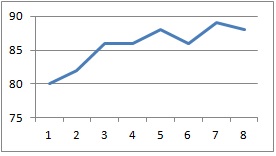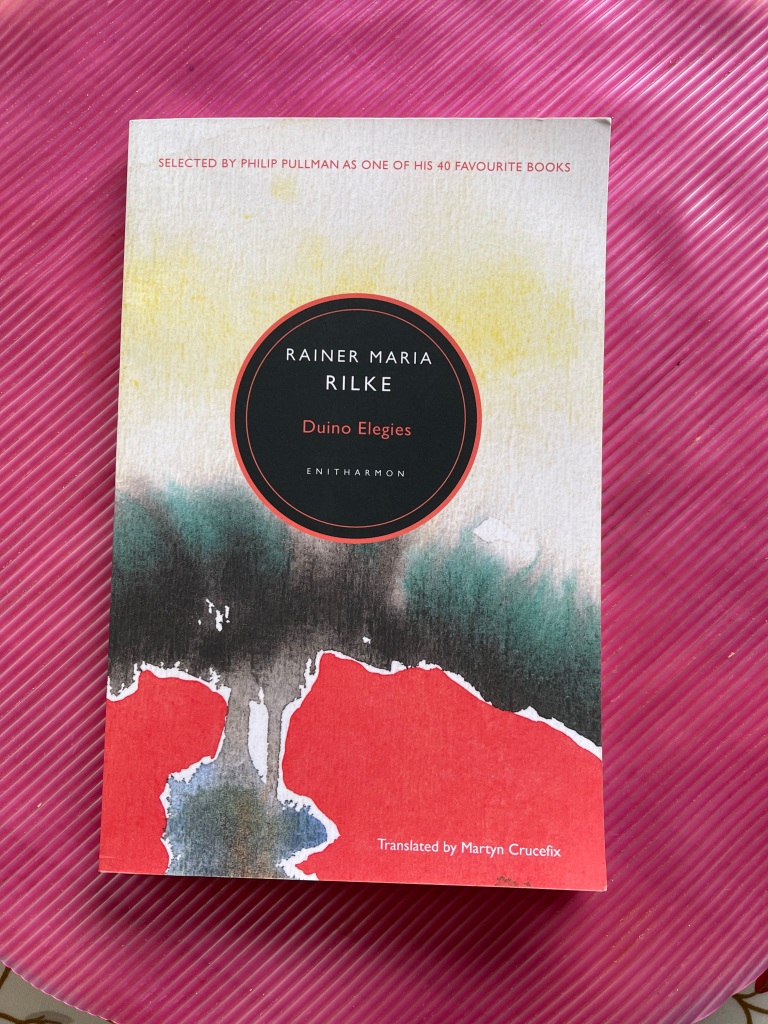Translated by Martin Crucefix
Published by Enitharmon, £9.99. in 2006
A Graph Review
I bought this, plus another title, from the author at a poetry reading.
I started to read it a month later. I have read a few other Rilke poems, by other translators but this is the first full collection. Duino Elegies is Rilke’s most successful book, to put it mildly. Started much earlier but written most concentratedly during 1922, this book has had a huge impact in European language and poetry both in its original German and translations. This translation by Martyn Crucefix is remarkable and powerful, fulfilling the original in its attempt at defining the human position in understanding, or lack of understanding, the world. Rilke is contemplating our inability to see the world as it is because we are able to think about, try to alter it, rather than live in its ‘here and now.’
Dare I say I wolfed it down? As a translated collection it was, and continues to be, highly praised. First published in 2006 and reprinted several times (my copy dated 2020.) There is an introduction by Karen Leeder which helps to place the period of Rilke’s writing, his style and reflections on the work within the Elegies. The meaning of the content is briefly considered but I am certain there are myriads of articles and analysis on the whole and parts.
My German language is a faded, mediocre ‘O’ level from 60 years ago so that’s no use. Reading the translation, I was immediately aware that the flow of images provided by the text with the emotional senses they provoked, would insist themselves into me. Did insist. I completed the Ten Elegies in one reading. Admittedly, something I try with all new collections, but with Duino Elegies, I was impelled to continue to the end.
I am more of a subjective than an objective reader. The Introduction notes the date it was finally written as around 1922, when change was both potential and progressing. That his style was his all own, more in the thought-mould of Nietzsche, Feud, Picasso, Baudelaire, et al.
For me, I also had the running thoughts of Jung and the universal unconscious puttering in and out. It was also pointed out, in 2006, that Elegies ‘is still modern.’ Now, almost twenty years later, this translation still feels that way. No doubt it will remain a classic for many years forward. New translations no doubt bringing continuing influences but this bar is set very high.
The elegies are set with the original text on the left page and the translation on the right. The length of the English page is frequently within a few lines of the original. I guess this was no mean feat.
Th final twenty pages are a ‘Commentary’ and give a short content/explanation of each elegy.
I found these very useful as brief overviews describing in simpler form how Rilke moved through his ideas.
I have to rate the cycle of poems via the translation. I found it a whirl of images, philosophical debates on the subject of humanity, on the position of animals, nature, death, and even the actuality of death. Individually each elegy gives pause for thought, discussion and elements of dispute. Such disputes are likely discussed within the next or another following elegy, which frequently follow lines of the previous but expand into new areas of description and ideas. We meet animals, fairies, statues, acrobats, lovers and children, amongst others, The cycle expands and returns, forming a universe of itself, within our own world and ideas. But beware, the conversation through the elegies seems balanced towards the void. That life is here and now, that acceptance of our place in the world should override our mental grasping for a life after death.
This English translation by Martin Crucefix of the Duino Elegies, by Rainer Maria Rilke are a ‘must read’. Classic in itself for almost twenty years, unlikely to be bettered for any student of poetry, language or philosophy.
The blurb claims the elegies are ‘a passionate celebration of the here and now’ of Rilke’s ‘enduring masterpiece.’ To which I must strongly agree that this all-encompassing collection will likely remain future-modern over the decades to come.
Martyn Crucefix has published numerous collections of poetry and won many awards for them.
The second book I bought from the author was:
Laozi: Daodejing, published 2016 by Enitharmon Press. paper £9.99 978 191039226 3


